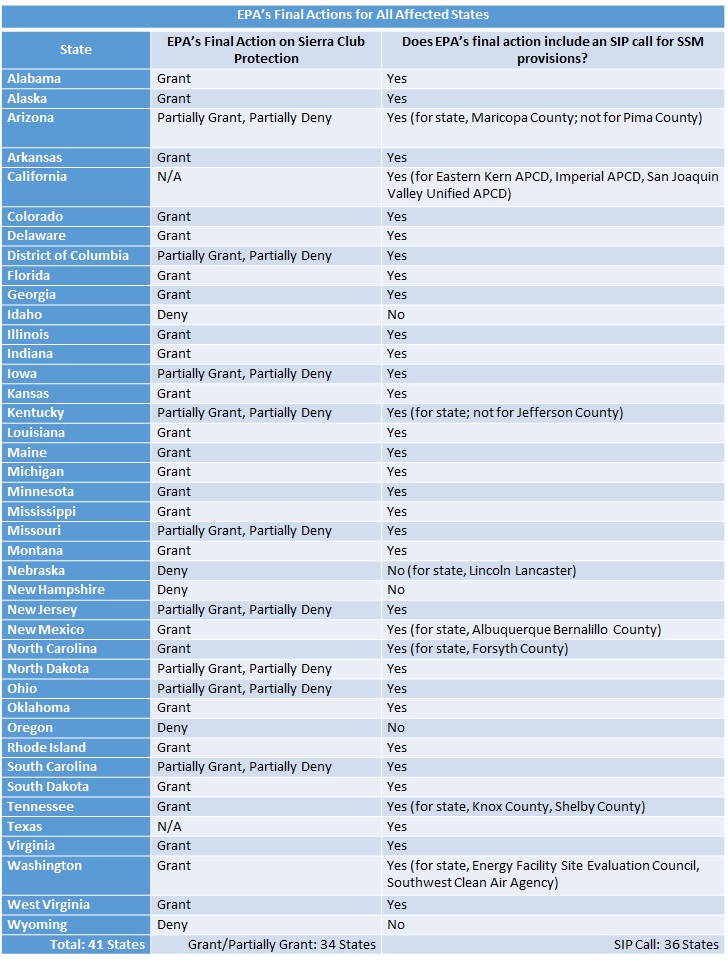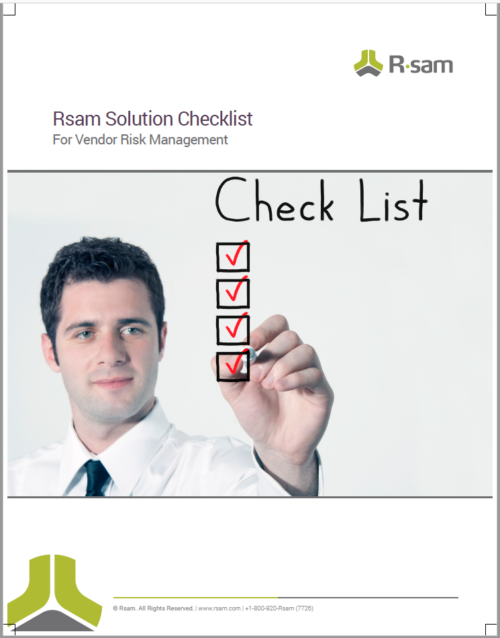Under the Clean Air Act, the United States Environmental Protection Agency can delegate to a state the authority to implement the Clean Air Act in that state if the state develops a “State Implementation Plan” (SIP). The EPA will delegate implantation authority if the EPA determines the SIP properly allows implementation and enforcement of the act within that state. If a state has been delegated authority to implement the Clean Act in its state, the state itself issues Clean Air Act permits for sources in its jurisdiction and enforces those permits and the other provisions of the Clean Air Act.
Most states are very eager to receive and maintain delegation of authority to implement the Act within the state, because they believe that state government can more appropriately and effectively regulate sources in those states than the federal EPA would. The Clean Air Act provides a mechanism commonly called an “SIP call” for correcting an SIP that the EPA finds no longer substantially adequate to meet Clean Air Act requirements. Once the EPA has approved an SIP, it can issue an SIP call to a state, requiring the state in question to modify its SIP or risk the EPA revoking its delegation of authority to that state. Under pressure from the Sierra Club, the EPA in 2015 issued an SIP call with respect to the SIPs of more than 30 states concerning provisions of SIPs relating to emissions during start‑up, shutdown and malfunction (SSM) periods.
States issue permits under the Clean Air Act that limit emissions of air pollutants from permitted sources. Exceptions from permit emissions limits during SSM periods exist in a number of state rules, some of which were adopted and approved into SIPs by the EPA many years ago. Recent court decisions, however, have held that under the Clean Air Act, such exceptions are not allowed in SIPs plans. When those SSM exceptions were included, it was widely believed that admissions limitations set at levels representing good control of admissions during periods of so called “normal” operations could in some cases not be met with the same emission control strategies during SSM periods, or during maintenance.
Prior to 1982, “normal” operations was meant by the EPA to refer to periods of operation other than start‑up, shutdown, maintenance or malfunction. Since 1982, however, the EPA has used the term “normal” in the ordinary sense of the word, to distinguish between predictable modes of source operation such as start‑up and shutdown and genuine “malfunctions,” which are by definition supposed to be unpredictable and unforeseen events and which could not have been precluded by proper source design, maintenance and operation.[1]
It became common for state plans to include provisions for special, more lenient treatment of excess admissions during such periods of start‑up, shutdown, maintenance or malfunction. Many of those provisions took the form of absolute statements that excess admissions during SSM were not to be considered violation of state rules. The EPA ultimately agreed with the Sierra Club that many of the state SSM provisions are not permissible under the Clean Air Act. The EPA identified 41 states with potentially problematic SSM provisions and in June of 2015 ultimately issued an SIP call for 36 of those states. A list of those states is included at the end of this article.[2]
The EPA established a November 22 deadline by which each affected state is to respond to the SIP call. The EPA has indicated that the states receiving the SIP call will in general have options as exactly how to revise their SIPs. Provisions that are effective by the SIP call (the automatic exemption provisions discussed above) have to be removed entirely and an affected source could no longer depend on the exemption to avoid all liability for excess emissions during SSM events.
The types of provisions (a provision granting a state air agency discretion to enforce exceedances during SSM events) could either be removed entirely from an SIP or retained, if revised appropriately, to apply only to state enforcement personnel. The EPA has stated that if a state removes an SIP provision that pertains to the state’s exercise of enforcement discretion, this removal would not affect the ability of the state to apply its traditional enforcement discretion and its enforcement program.
The implications for regulated sources in the affected states will depend on the nature and frequency of the sources SSM events and how the state has chosen to revise its SIP to address any excess emissions during SSM occurrences. In addition, if a state fails to make the required SIP revision, the EPA could impose a 2‑to‑1 emission offset requirement for all new and modified major sources subject to non‑attainment new source review and restrictions on highway funding.
If you own or operate an air emissions source in any of the states listed in the chart below, you should check your permit to determine whether the permit includes any SSM exceptions or exemptions. If the permit does include specific SSM provisions, you should contact your permitting authority to determine how your state has responded to the SIP call.

[1] 1982 start-up, shutdown, malfunction guidance attachment page 2. The 1982 guidance is in the EPA Rule Making Docket at EPA-HQ-OAR-2012-0322-0005.
[2] The source of the list an accompanying information is the EPA’s “State Plans to Address Emissions During Startup, Shutdown and Malfunction: Final Action on Response to Petition for Rulemaking, Restatement of Policy, Findings of Inadequacy and Call for Revisions Fact Sheet,” https://www3.epa.gov/airquality/urbanair/sipstatus/docs/20150522fs.pdf.



 A frequent lecturer and author on diverse environmental issues,
A frequent lecturer and author on diverse environmental issues, 






